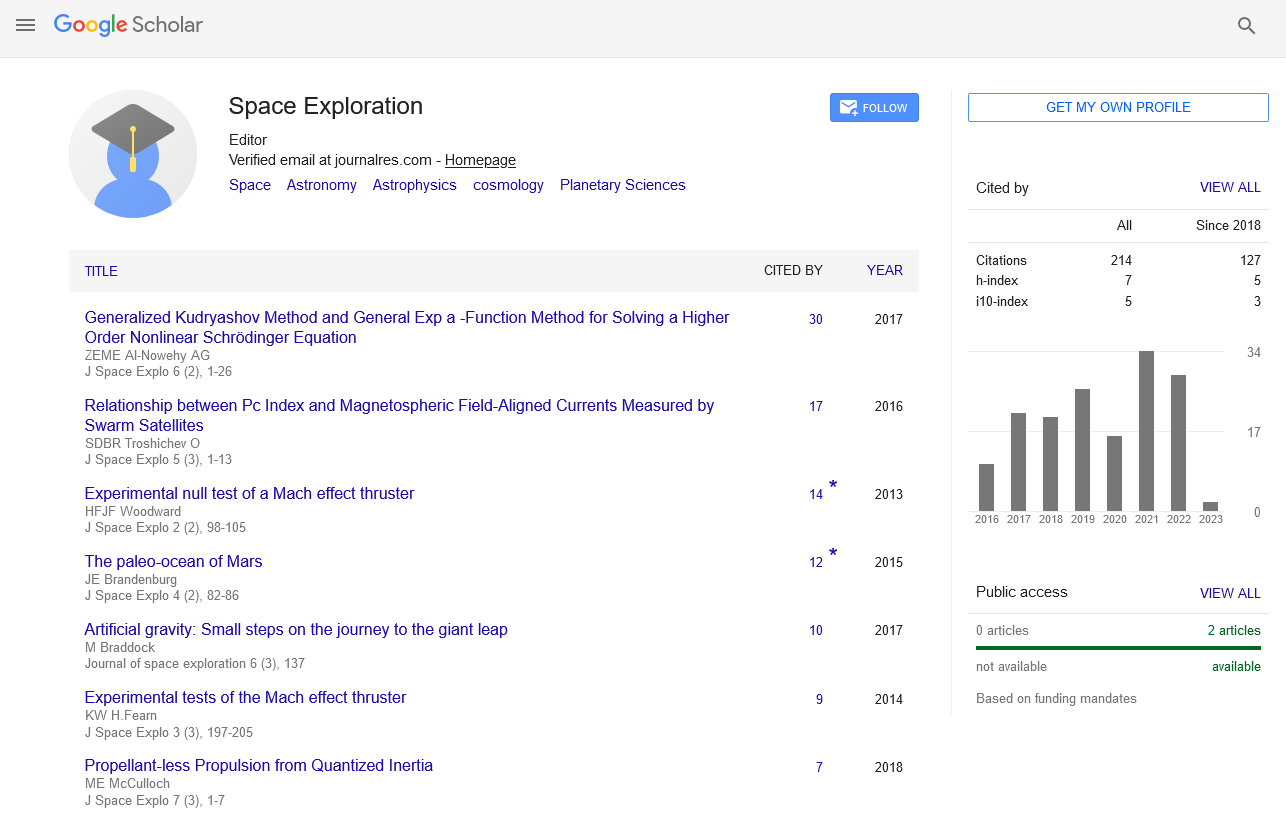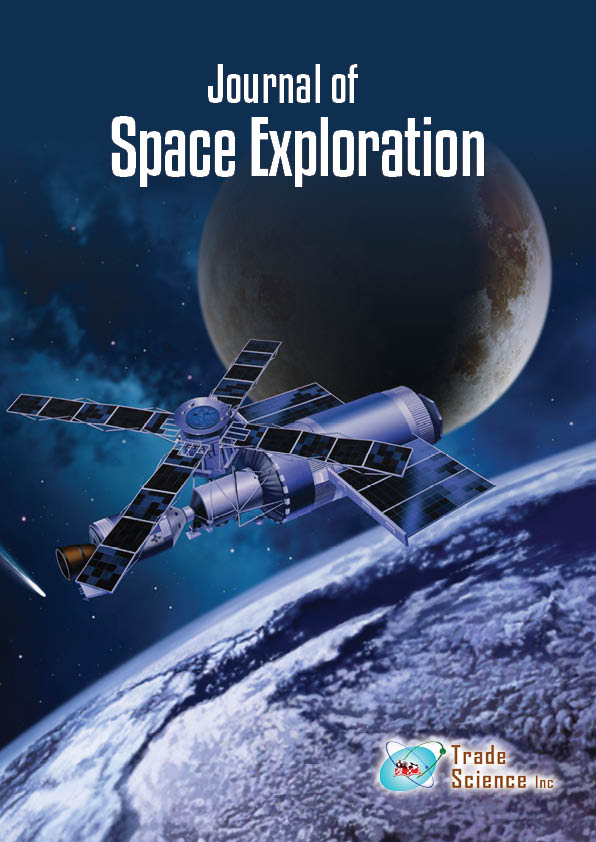Perspective
, Volume: 13( 1) DOI: 10.37532/2320-6756.2024.13(1).348Mental Health in Space: Addressing the Psychological Challenges of Space Exploration
Received date: 12-Dec-2023, Manuscript No. tsse-24-128636; Editor assigned: 15-Dec-2023, PreQC No. tsse-24-128636 (PQ); Reviewed: 24- Dec-2023, QC No tsse-24-128636 (Q); Revised: 08-Jan-2024, Manuscript No. tsse-24-128636 (R); Published: 13-Jan-2024, DOI. 10.37532/2320-6756.2024.13(1).348
Citation:Watson E. Mental Health in Space: Addressing the Psychological Challenges of Space Exploration, J Space Explor.2023; 13(1).348.
Abstract
Space exploration presents unique psychological challenges to astronauts, including isolation, confinement, and the stress of longduration missions. Maintaining optimal mental health is essential for the success and well-being of astronauts during space missions. This article explores the psychological challenges of space exploration, the impact on astronaut mental health, current strategies for addressing mental health concerns in space, and future considerations for promoting psychological resilience and well-being in astronauts.
Keywords
Mental health; Space
Introduction
Space exploration represents the pinnacle of human achievement, but the psychological challenges faced by astronauts in the isolation and confinement of space cannot be underestimated. From the stress of long-duration missions to the psychological effects of microgravity, maintaining mental health is crucial for the success and well-being of astronauts. In this article, we delve into the psychological challenges of space exploration, the impact on astronaut mental health, and the strategies employed to address these concerns.
Psychological challenges of space exploration
Discuss the unique stressors and challenges faced by astronauts during space missions, including isolation, confinement, separation from loved ones, and the demanding nature of spaceflight. Explore the psychological effects of microgravity on astronauts, including sensory deprivation, alterations in perception, and the "space adaptation syndrome" experienced during the initial stages of spaceflight. Highlight the importance of psychological resilience, coping mechanisms, and interpersonal relationships in mitigating the psychological impact of space exploration.
Impact on astronaut mental health
Examine the prevalence of psychological issues among astronauts, including anxiety, depression, sleep disturbances, and interpersonal conflicts. Discuss the potential long-term effects of space travel on mental health, such as post-traumatic stress disorder (PTSD), adjustment disorders, and the challenges of readjusting to life on Earth after returning from space. Explore the role of cultural, gender, and individual differences in shaping astronauts' psychological responses to the challenges of space exploration.
Psychological support and interventions
Discuss the importance of psychological support systems and interventions for promoting astronaut mental health during space missions. Highlight the role of pre-mission psychological screening, training, and debriefing programs in preparing astronauts for the psychological challenges of spaceflight. Explore the use of psychotherapeutic techniques, Cognitive-Behavioural Therapy (CBT), and mindfulness-based interventions for managing stress, anxiety, and other mental health issues in space.
Crew cohesion and support networks
Examine the importance of crew cohesion, teamwork, and social support networks in maintaining astronaut mental health and wellbeing. Discuss the dynamics of crew interactions, communication styles, and conflict resolution strategies in fostering a positive team environment in space. Highlight the role of informal support networks, peer counselling, and mutual aid groups in providing emotional support and camaraderie among astronauts during space missions.
Future Considerations and Challenges
Speculate on the future of mental health care in space and the challenges of addressing psychological concerns in long-duration missions, lunar habitats, and Mars expeditions. Discuss the potential use of Virtual Reality (VR), Artificial Intelligence (AI), and telepsychiatry platforms for delivering remote psychological support to astronauts in space. Advocate for continued research, innovation, and investment in space psychology and mental health care to ensure the well-being and resilience of astronauts on future space missions.
Conclusion
Mental health is a critical component of astronaut well-being and mission success in space exploration. By understanding the psychological challenges of spaceflight, implementing effective support systems and interventions, and fostering a culture of psychological resilience and well-being, we can ensure the safety, health, and success of astronauts as they venture beyond Earth's orbit into the cosmos. Through collaboration, innovation, and a commitment to astronaut mental health, we can navigate the psychological challenges of space exploration and unlock the full potential of human exploration of the universe.

